Entertainer Natsuki Mari injects a touch of je ne sais quoi into the kitsch world of modern Japanese showbiz, writes Judit Kawaguchi. Portraits by David Stetson.
On a stage overwhelmed by a giant mountain of hay, Natsuki Mari sits on a steel can, her wavy hair messy and full of straw. She looks both lovely and intense to the point of scary. She begins to strike the can and just as a rhythm is established, she suddenly stops, listens, looks up and coughs. Every time the audience gets comfortable, she interrupts the fun. She reminds them that this is a theater piece where one is not supposed to succumb uncritically to some show a performer puts on. She is up there to make us think and her myriad voices all tell a story.
Renowned film narrator Sawato Midori compares Natsuki to some of the silver screen’s greatest stars. “She has an honesty about her performances that transcends all borders of nationality, race, age, place and media,” she says. “One moment she is a little child, the next an old person. She is a man, a woman – all. She is an artist in the very deep sense of the word. Her dimension is very different from anyone I have seen, especially on the Japanese stage where cute is the operative word for success.”
Yes, in Japan where Kitty-chan rules, Natsuki is a definite enigma. Her favorite actress is Jeanne Moreau, her role model is Pina Bausch and she loves Kurt Weil’s songs. Eugene Ionesco and Samuel Beckett would have written plays for her were they alive and living in Tokyo. No wonder we rarely see her on TV – she doesn’t belong there. She is too heavy for the general fluff most TV shows these days offer up as entertainment. How did she get to where she is today?
“My dad was a regular salaried worker who loved music and our home was always filled with the classics,” Natsuki says, “so I thought I would be a music teacher later on. I had the usual dreams of my generation: getting married and living a simple life. I was a very shy kid, unable to express my feelings. I was pretty unbalanced.”
Born in Tokyo in 1952, she pursued singing after high school (against her family’s wishes) and released two albums under her real name, Nakajima Junko. Both were flops and she gave herself one more chance.
“It was June and I figured by the end of summer I should decide if I continued or not so I called myself Natsuki Mari.
In 1973 she became an instant national sensation with her sexy rendition of “Silk Stockings” but a serious bout of acute anemia in the months that followed kept her off the TV screens just long enough to drop off the radar in terms of Japanese media coverage. Her more notorious side was formed performing in smoky joints traveling around Japan as a struggling cabaret singer.
“This went on for eight years, almost till I was 30,” she says. “It was an awful struggle emotionally. The money was good but my life wasn’t. I was utterly miserable and wondered if that was all there was to life.”
Luckily for us, it was not. Out of the blue she was invited to play a role in a musical. She shined and other offers followed, setting in motion her career as a leading actress.
“When I sang, I felt comfortable but in the theater I suddenly realized I didn’t know anything about dancing, singing or the stage. I lost my confidence and developed all kinds of complexes. I wanted to get better at my craft so I started training,” she says.
Natsuki trained non-stop for the next 10 years while she acted in various plays and films. She also released several albums. She was a star and had it all but she felt the need for another change.
“I was tired of being told to stand there, say that, do that,” she says. “Japan is a hierarchical society and the system is the same in the arts, too. The director acts as a teacher and actors are nothing but students. He tells them what to do and there is really no time for any discussion. I wanted more time to think about my work with many different people.”
In 1993 she wrote, directed and staged her first Impressionist show. In the 12 years since, she has traveled with her shows to many countries around the world and on the net there are sites dedicated to her in Polish, French and Russian. She is currently preparing for her eighth Impressionist show, scheduled for October 2006.
“I love performing abroad because the audiences are mature and honest,” she says. “If they don’t like the show, they get up and go home. If they love it, I get a standing ovation. I became a stronger person and performer thanks to such audiences.”
Natsuki is constantly busy with other projects. She is often invited to appear on TV, and hosts regular workshops in which debate is encouraged and participants’ ideas are respected. Earlier this year, she released a beautiful album entitled Sensou wa Owatta (The War Is Over). And all of this comes hot on the heels of her fantastic performance in 2001 as the voice of Yubaba in Miyazaki Hayao’s Spirited Away.
Next up, Natsuki plays a character called Yoroboshi in Yukio Mishima’s Modern Noh Plays, with performances from June 1-19 in the Saitama Arts Theater.
Maya Angelou, an internationally respected poet, writer and educator, once said: “When you learn, teach. When you get, give.”
Natsuki is a shining example of the way in which such notions can be put into practice. Once the show is over, her spirit lingers – and this certainly translates well into any language!
Story by Judit Kawaguchi
From J SELECT Magazine, June 2005

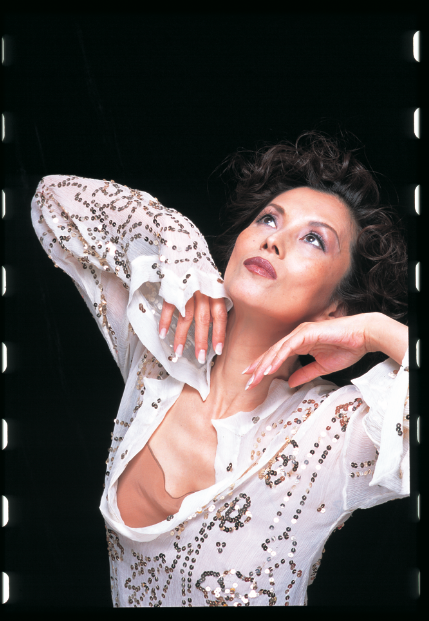



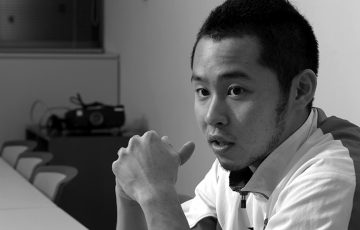
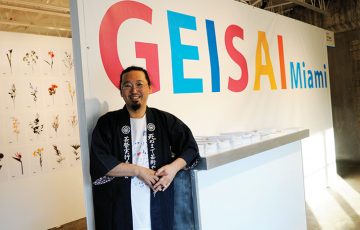

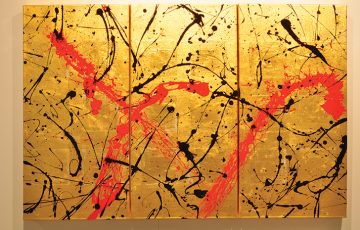

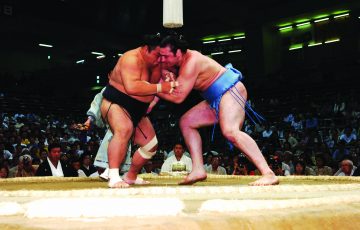




Recent Comments